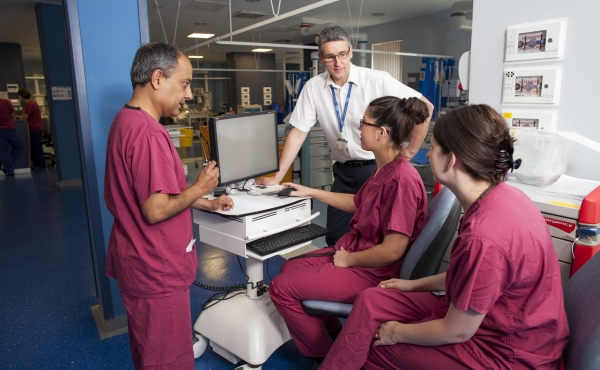Proving the Case for Perioperative Care
The impact of perioperative care on healthcare resource use – rapid research review
This report provides evidence to justify the case for perioperative care, the integrated multidisciplinary care of patients from the moment surgery is contemplated through to full recovery.
In recent decades, many different facets of perioperative care have been developed and implemented across countries and healthcare organisations. This local evolution of practice does not lend itself to transformational change or large-scale data collection about impacts. Despite this, there is much research about the value of perioperative care.
We have brought together, perhaps for the first time on this scale, a wide range of research about the effectiveness of perioperative care. We considered over 27,000 studies in preparing this review. The results show that perioperative care is associated with high quality clinical outcomes, reduced financial cost and better patient satisfaction.
Our review highlights the effectiveness of clear perioperative pathways, with an average two-day reduction in hospital stay across multiple types of surgery.
Never has there been such an opportunity to deliver the triple value aim of healthcare, nor to institute rapid large-scale transformational change. This report is a call to action to further implement and embed perioperative care rapidly.
Key Messages
Benefits for people having surgery
Perioperative care pathways include components such as shared-decision making; preoperative assessment; prehabilitation; multidisciplinary working and follow-up after surgery. UK and international evidence show that perioperative care pathways and their components can help to:
- increase how prepared people feel for surgery
- increase how empowered, active and involved people are in their care
- increase communication between people having surgery and healthcare teams
- increase people’s satisfaction with their care
- reduce complications after surgery, meaning that people may feel well sooner and be able to resume their day to day life and employment more quickly
Benefits for health services and systems
There is also evidence from the UK and internationally that perioperative care pathways and their components can help to:
- reduce the amount of time that people stay in hospital after surgery
- reduce the use of intensive care units after surgery
- reduce complication rates after surgery, meaning fewer resources are spent on this
- reduce the cost of care or cost the same as conventional care



